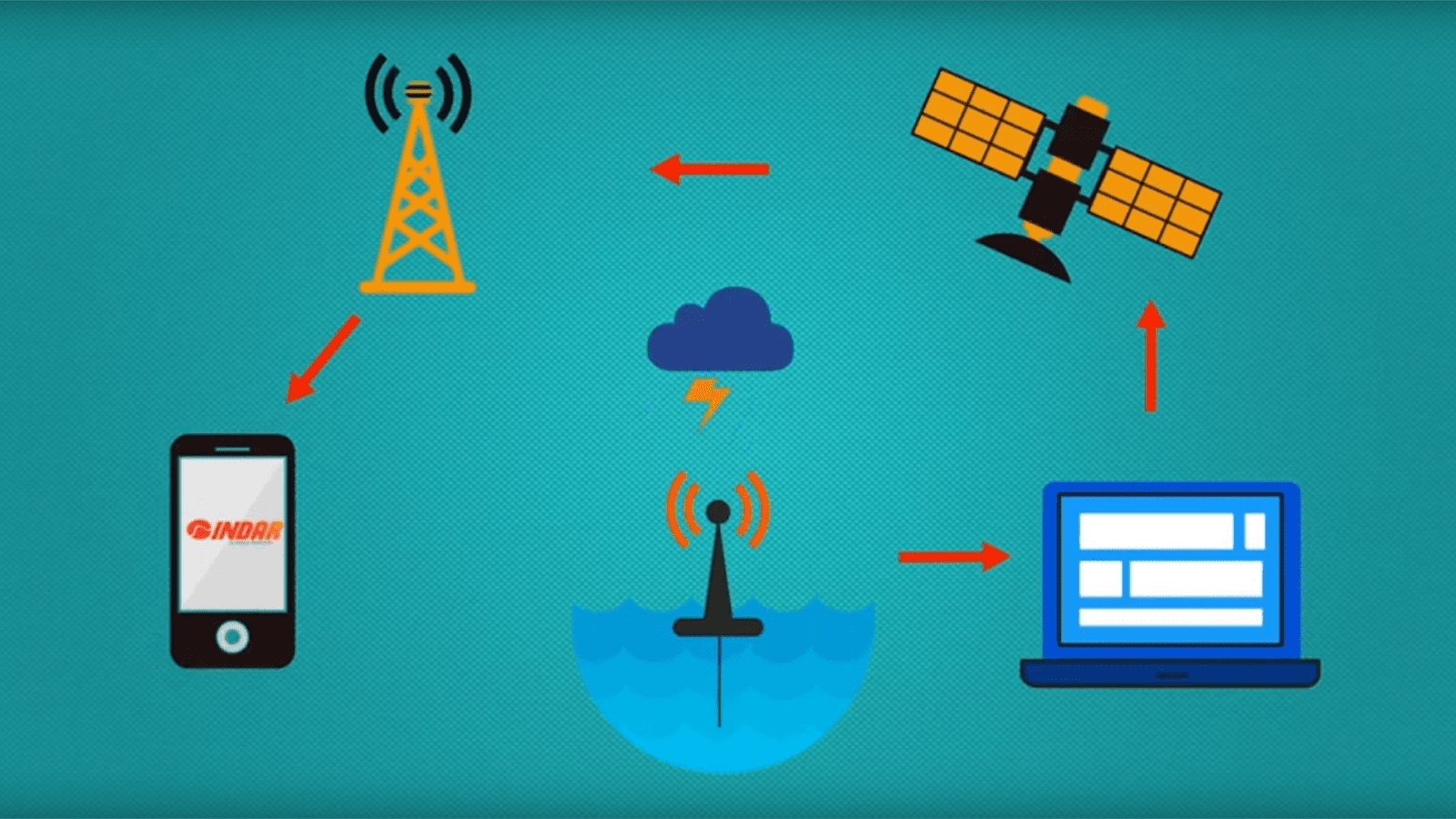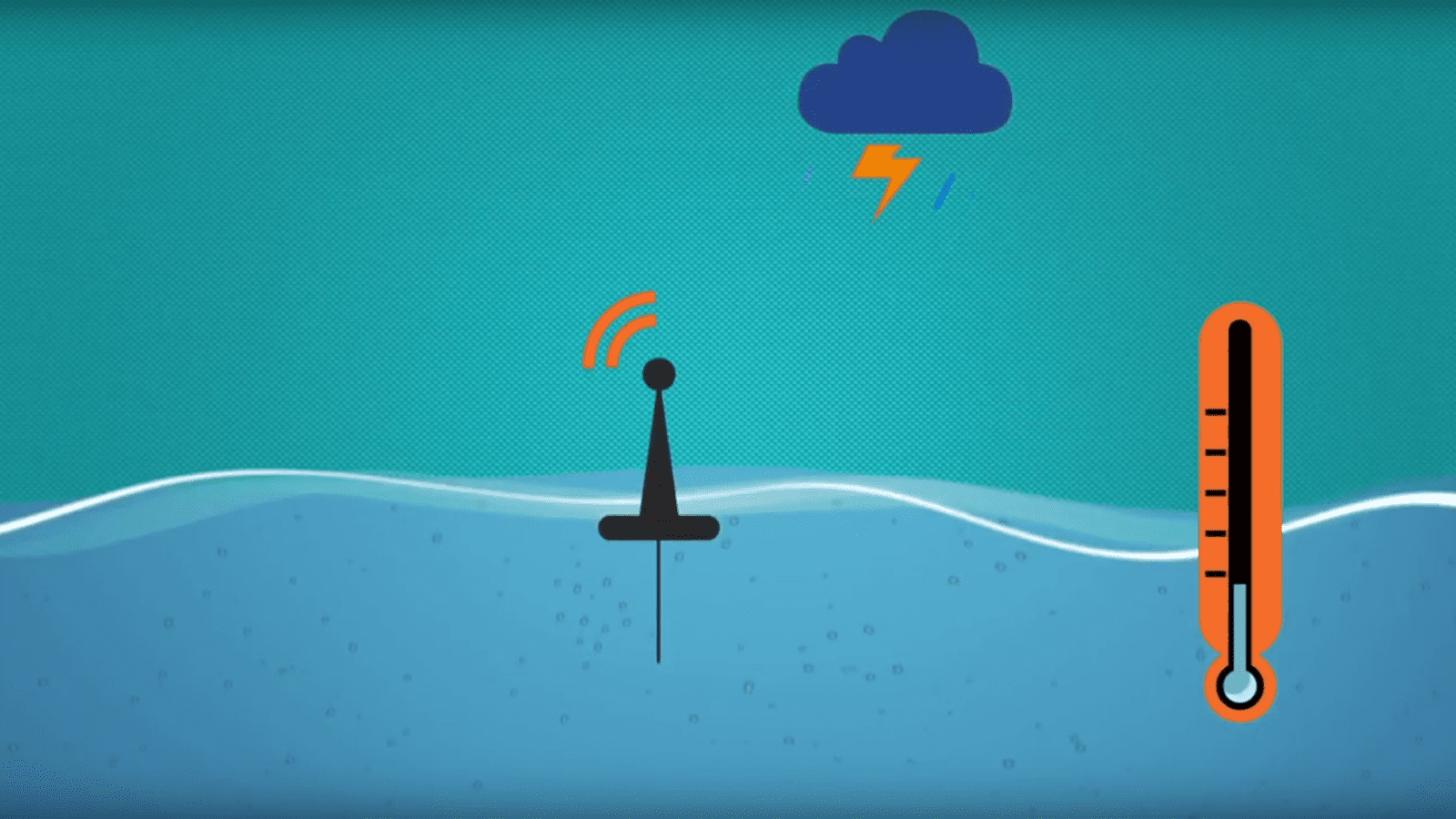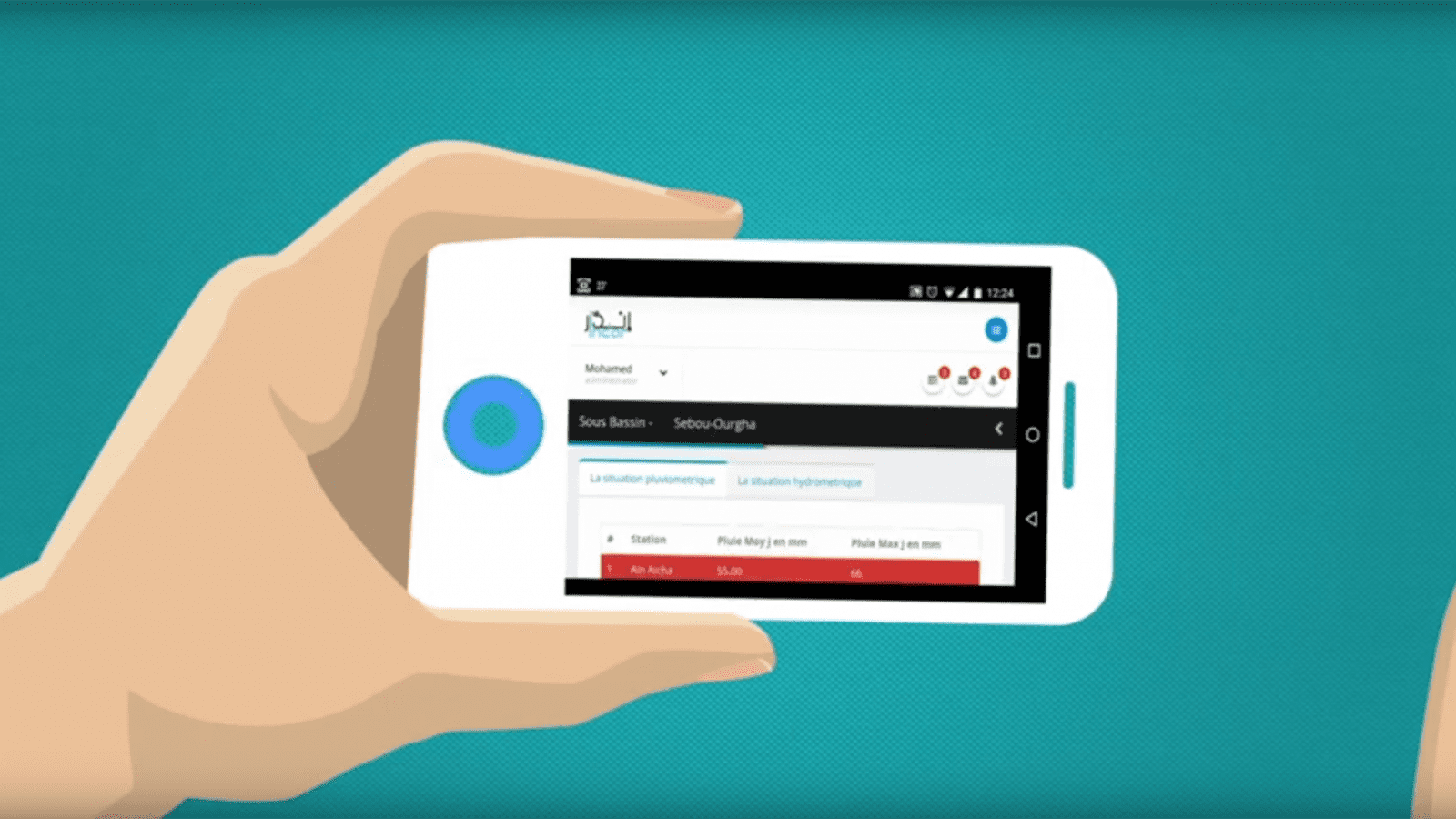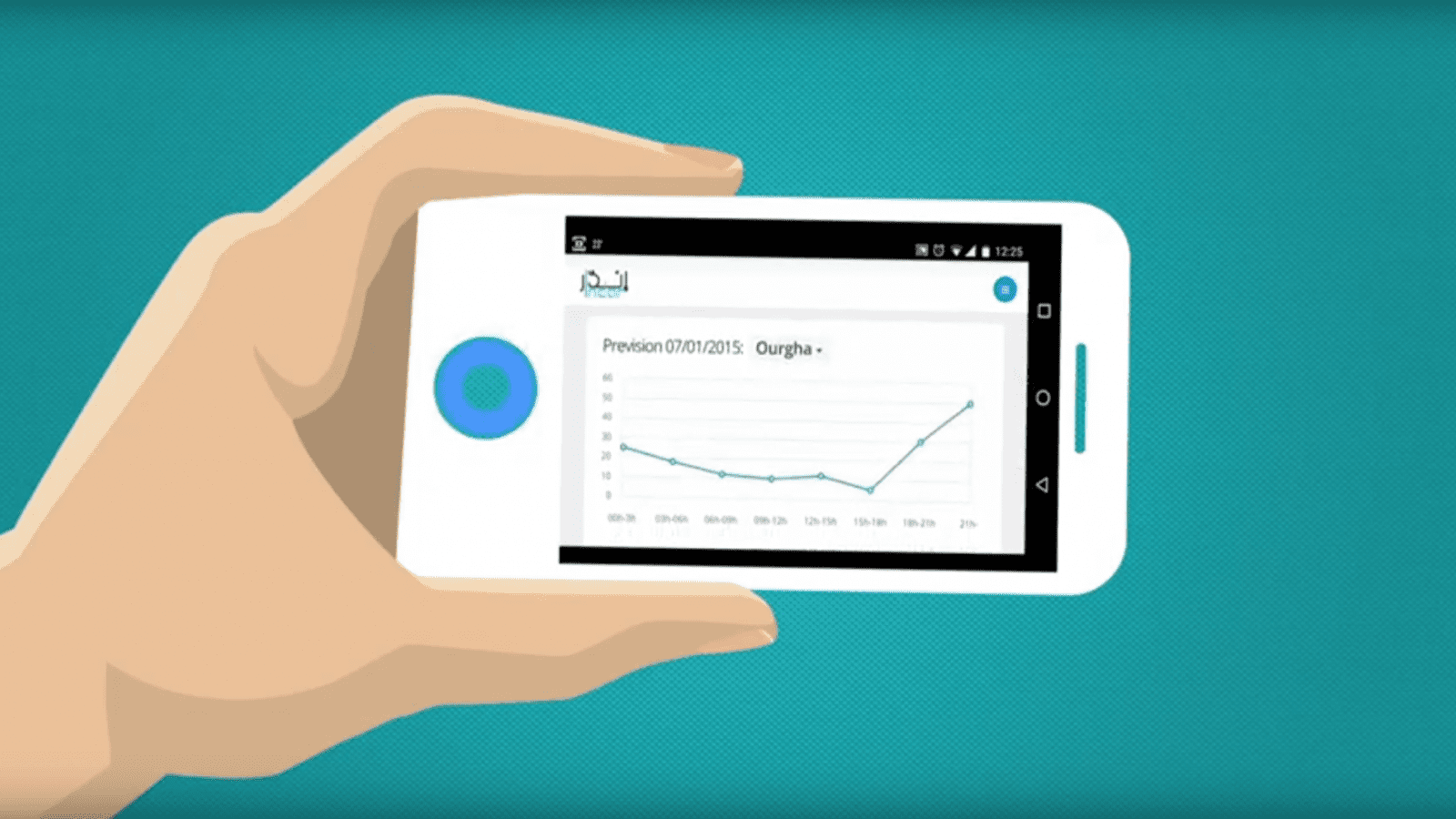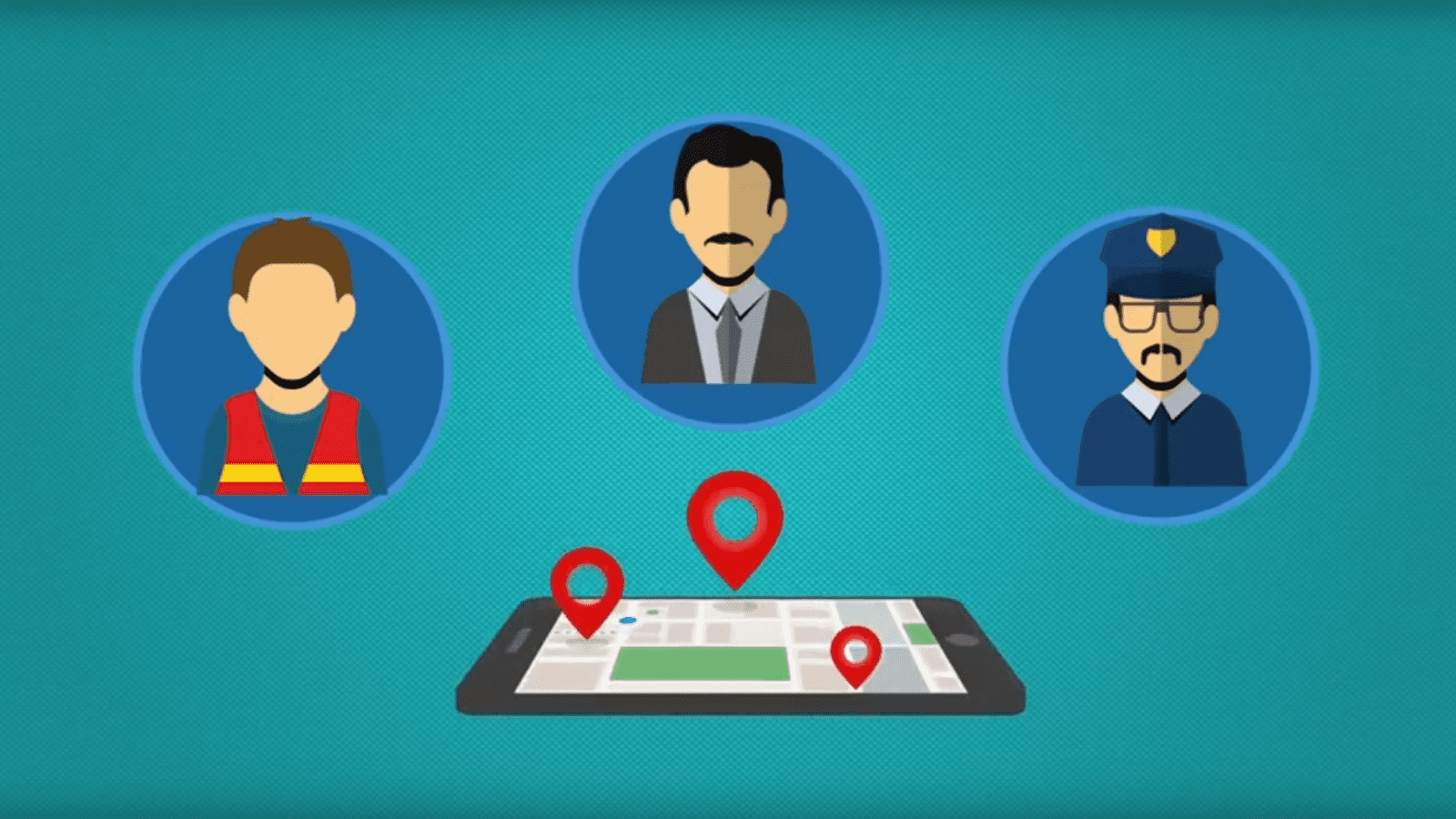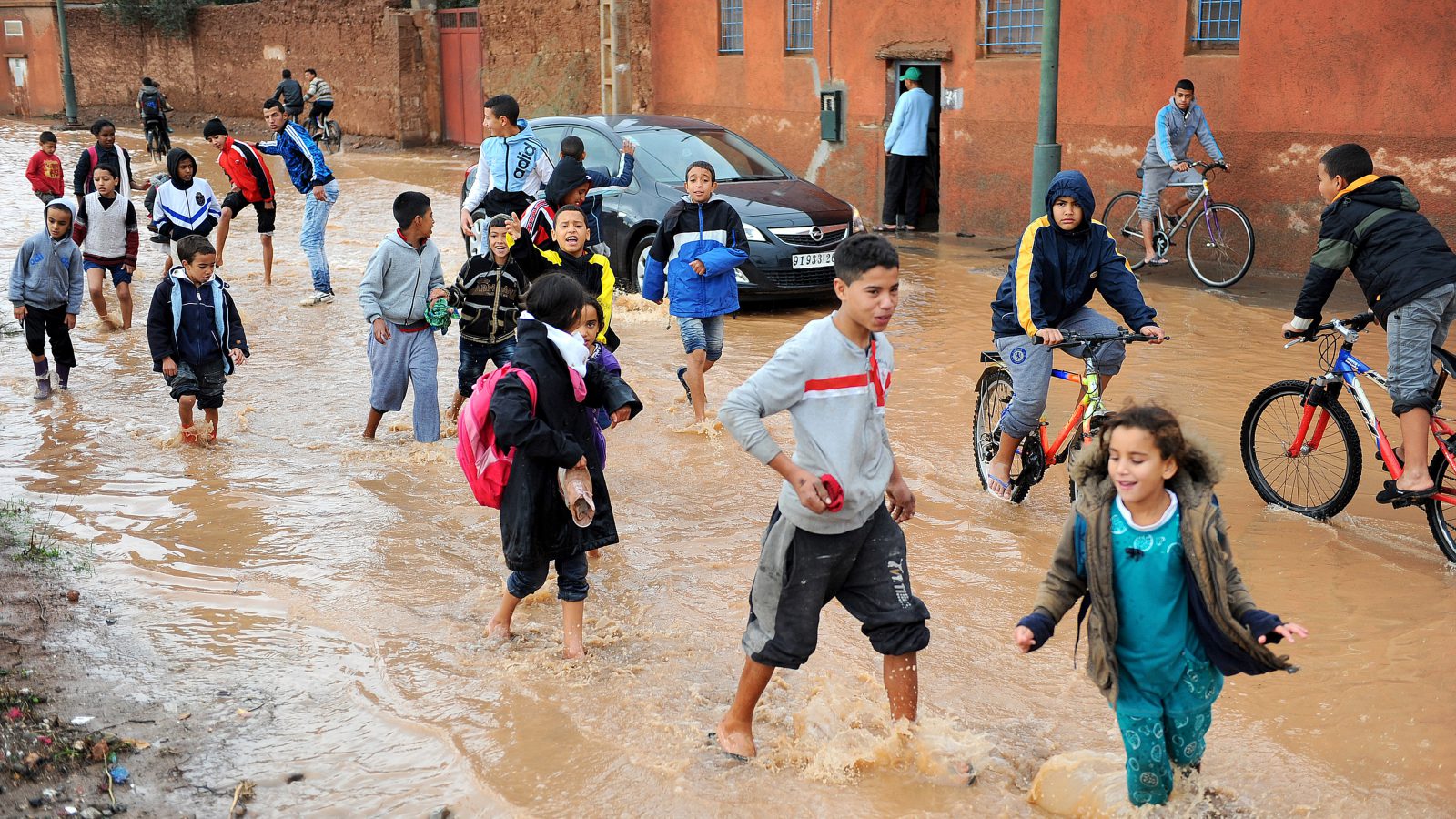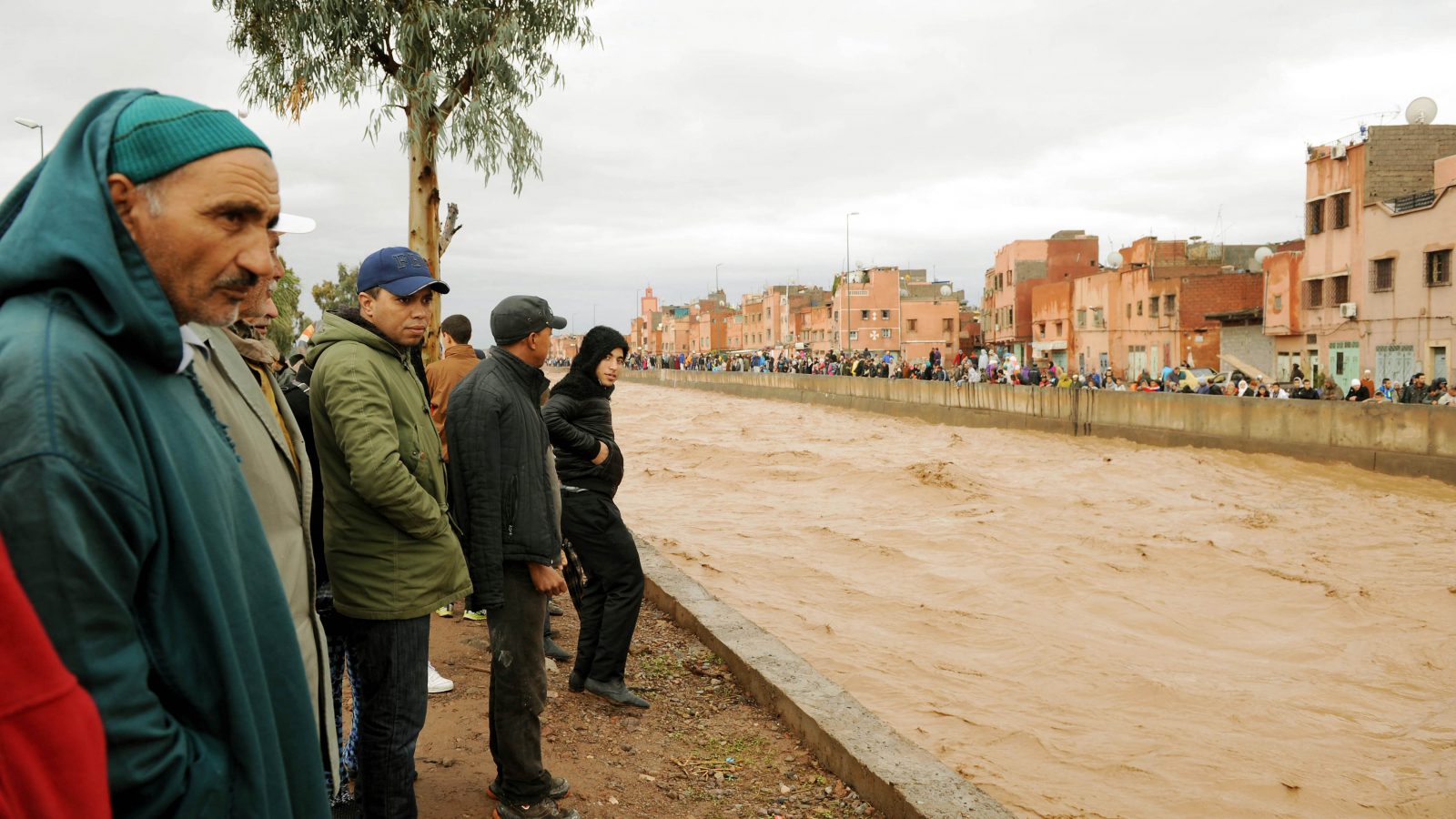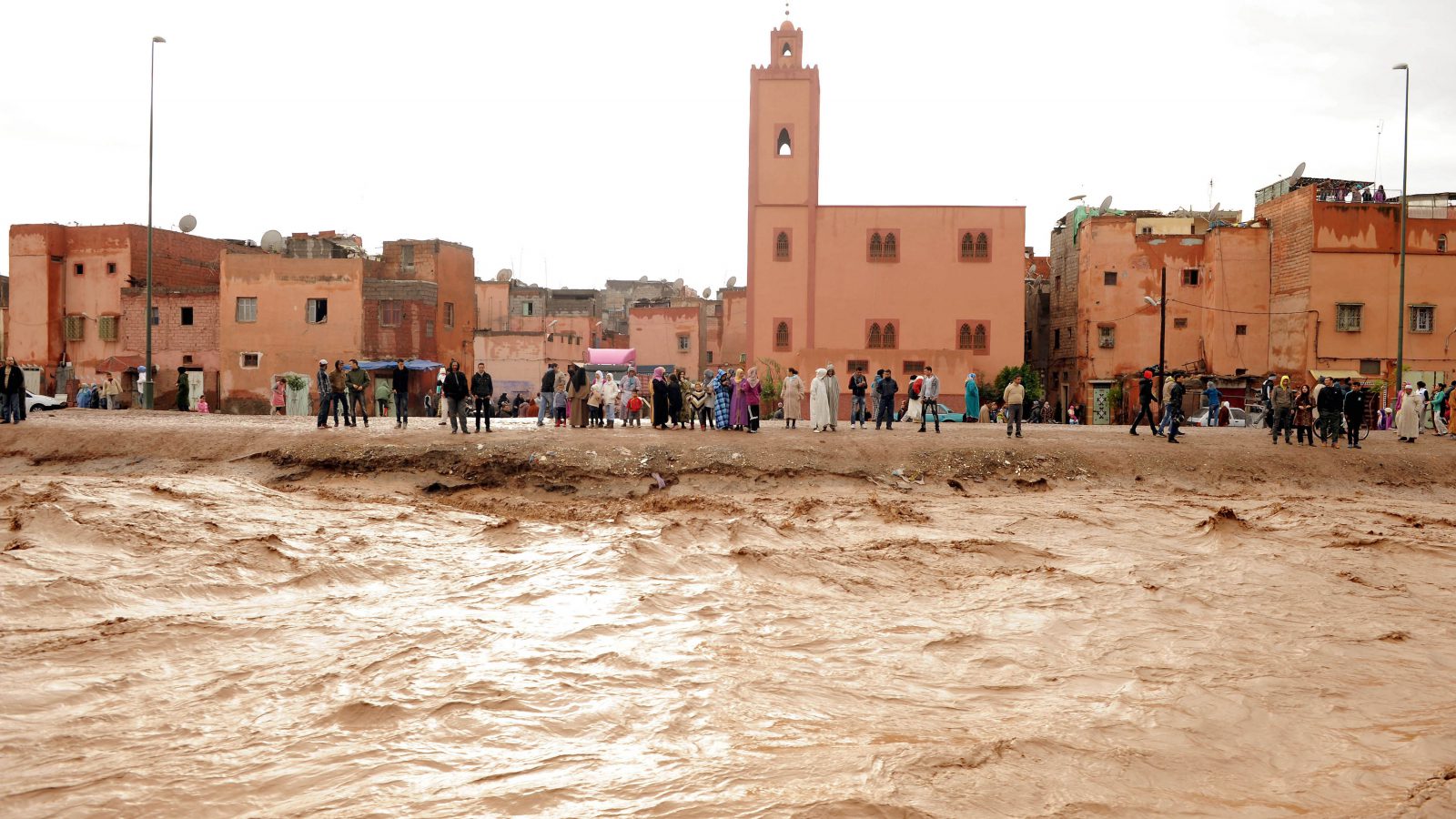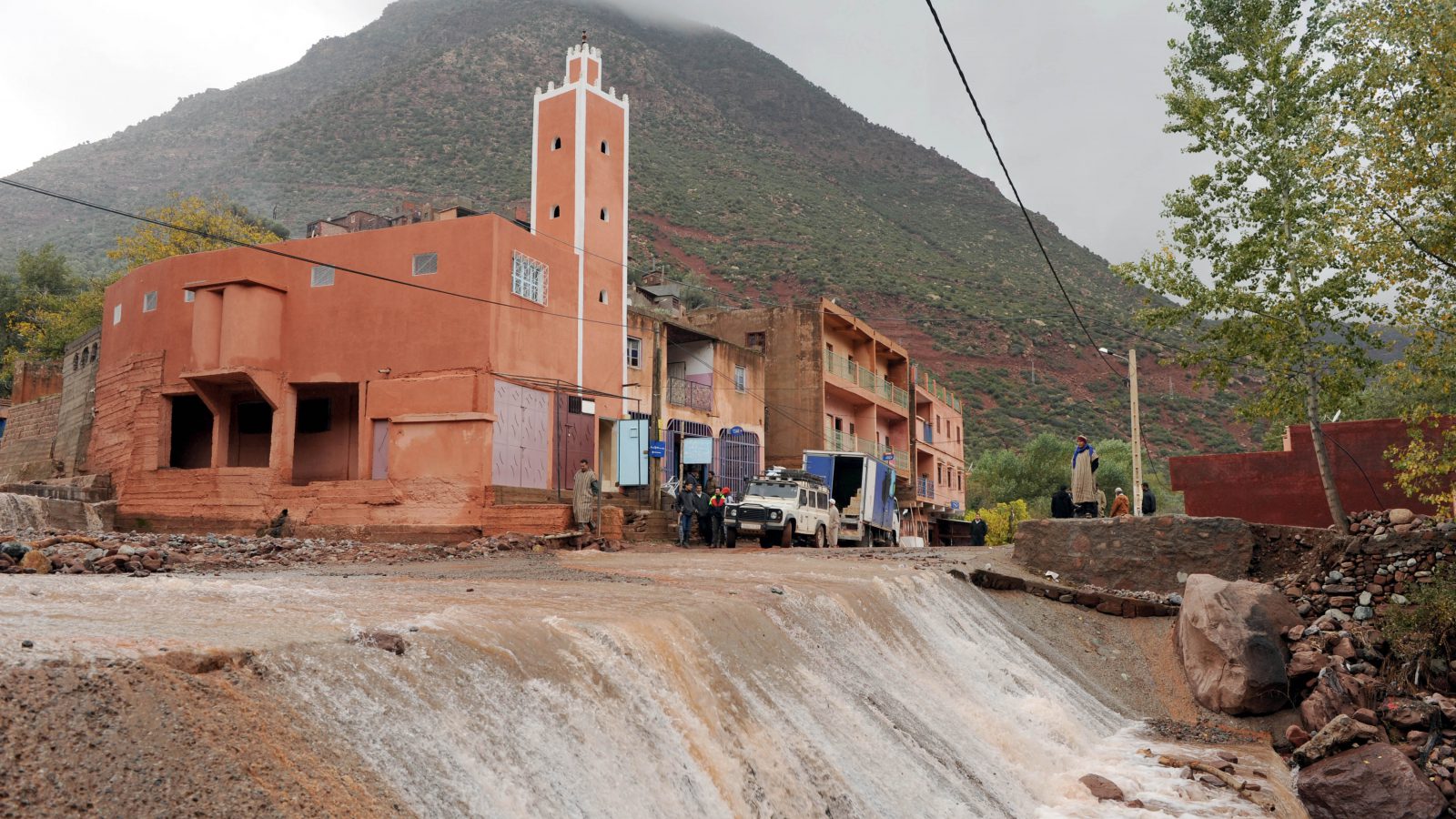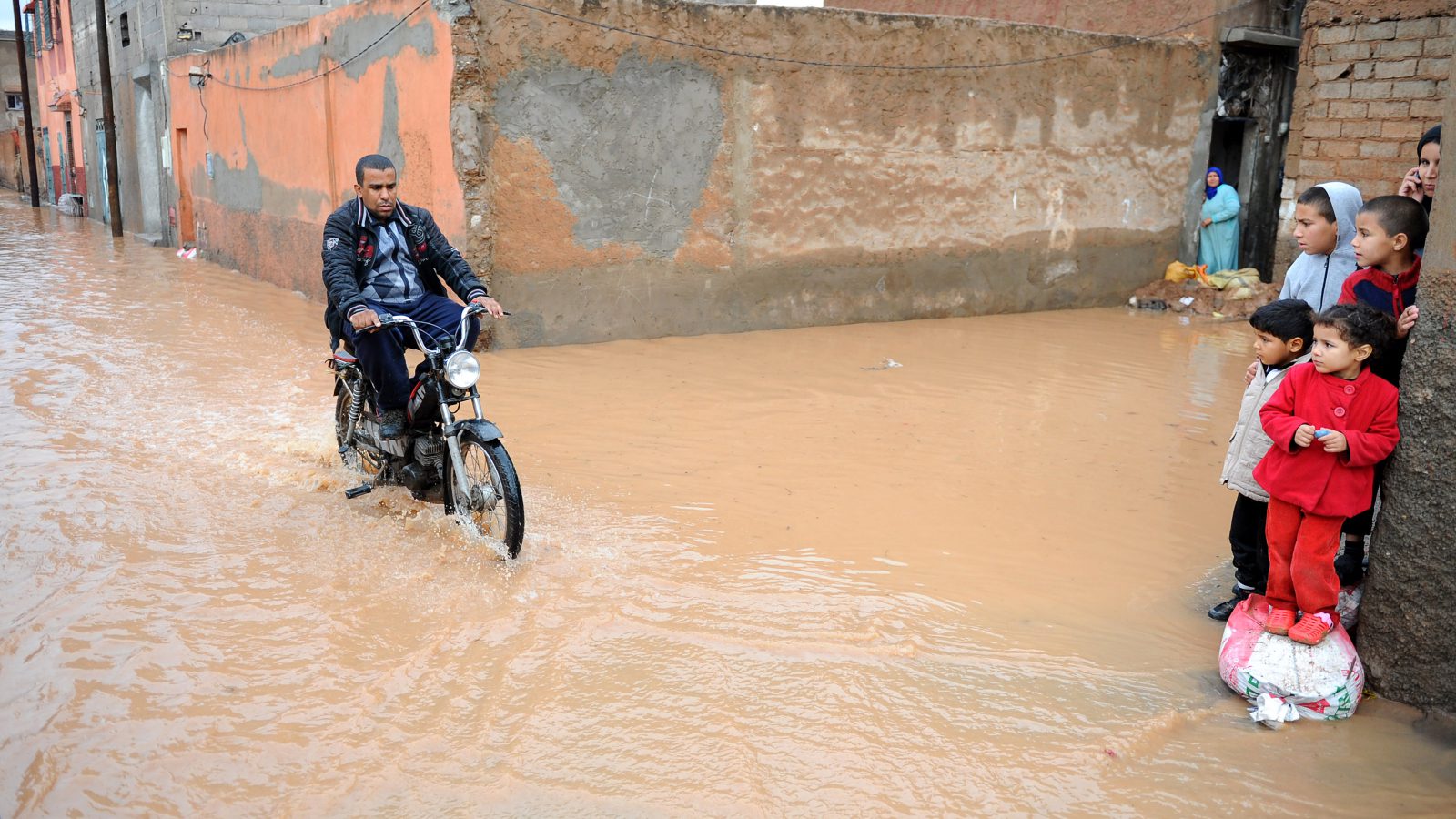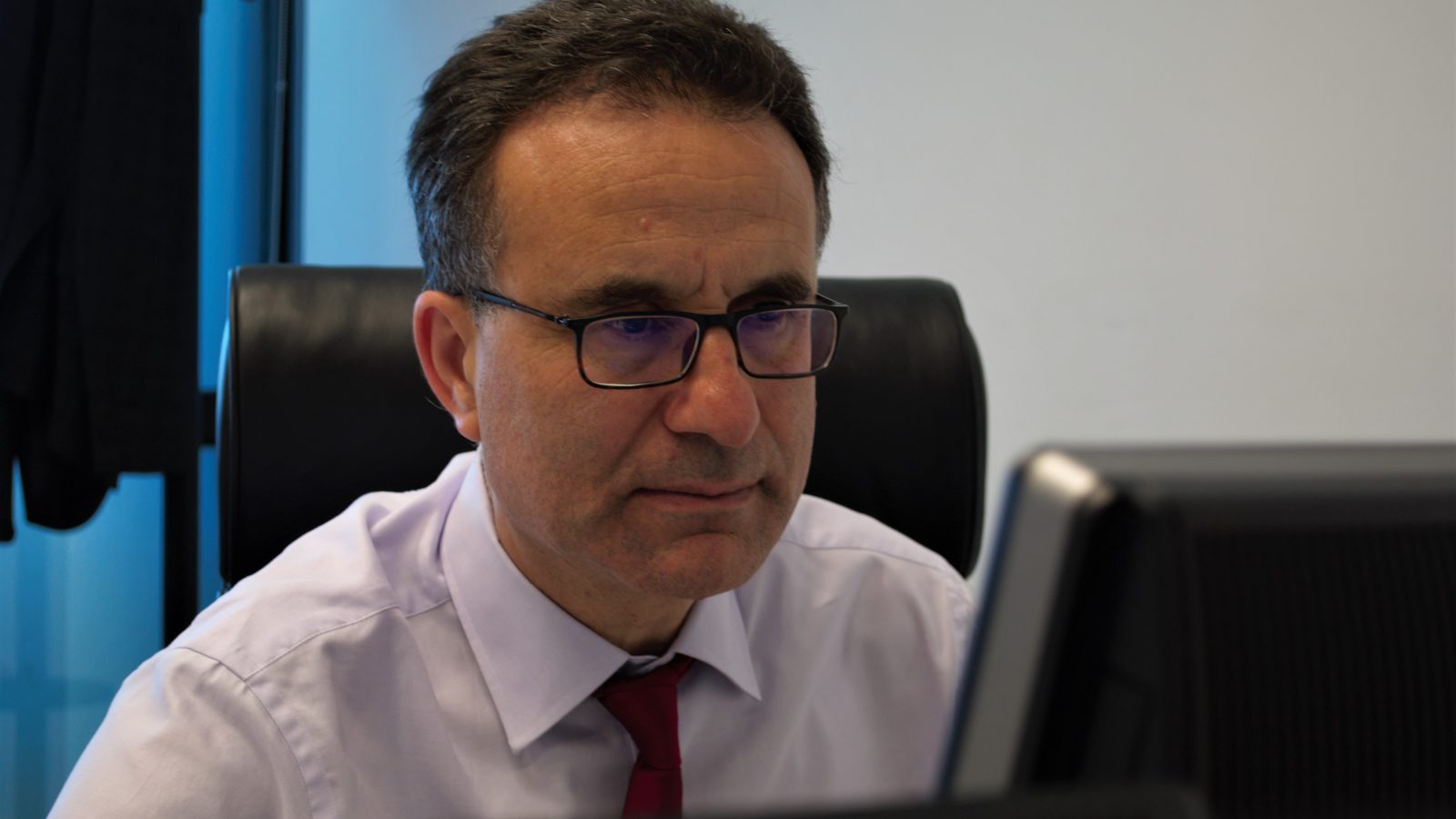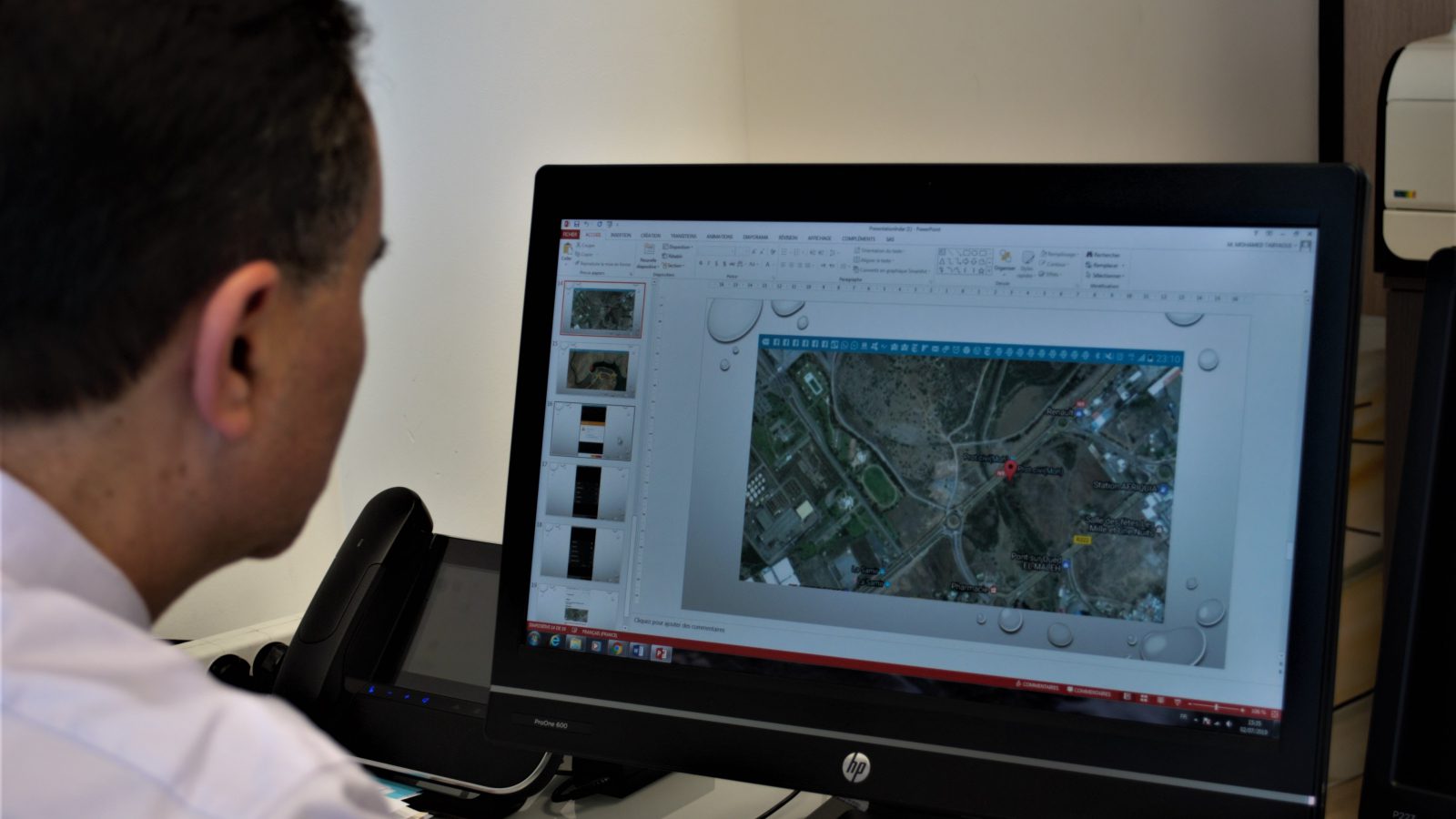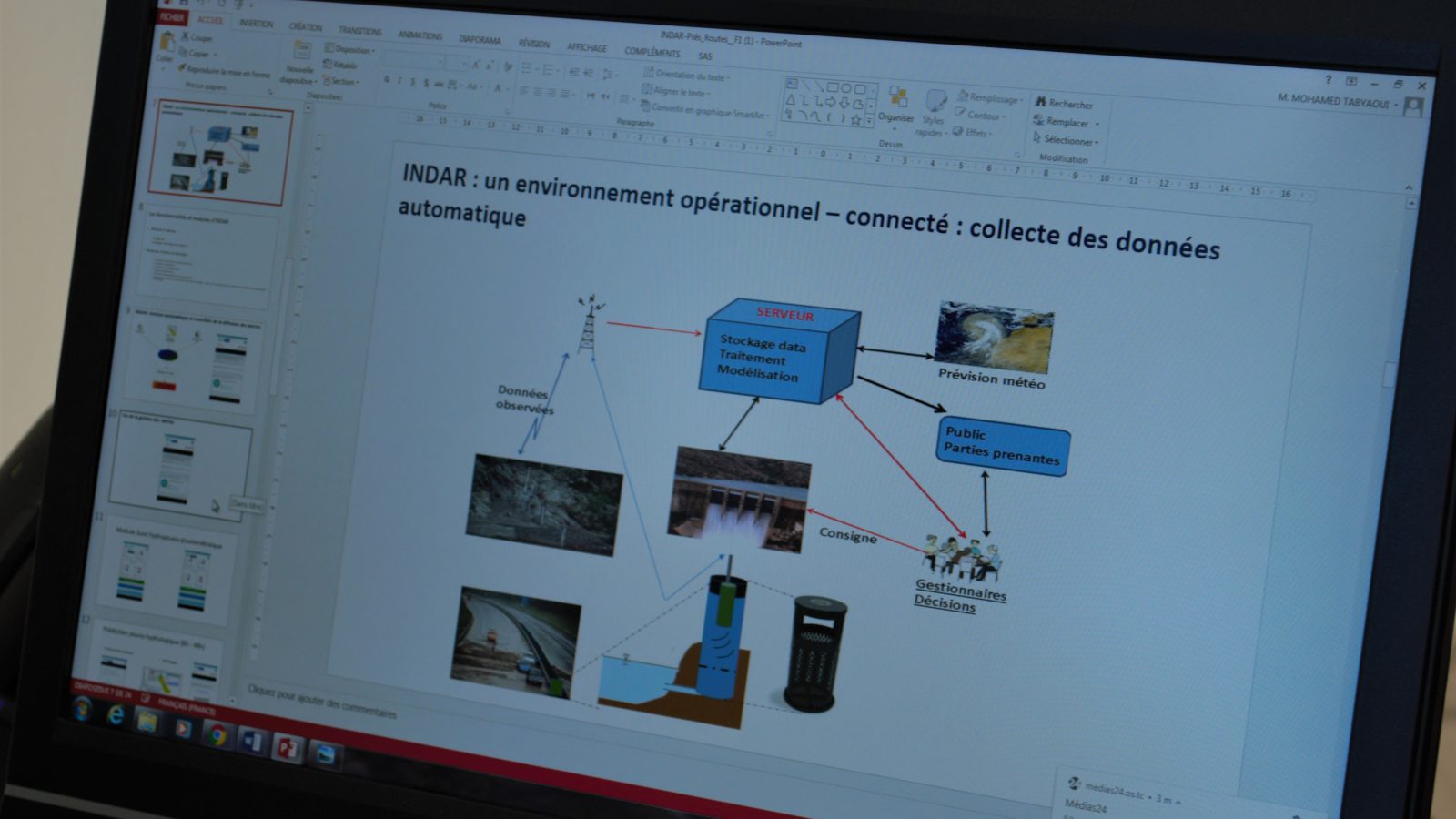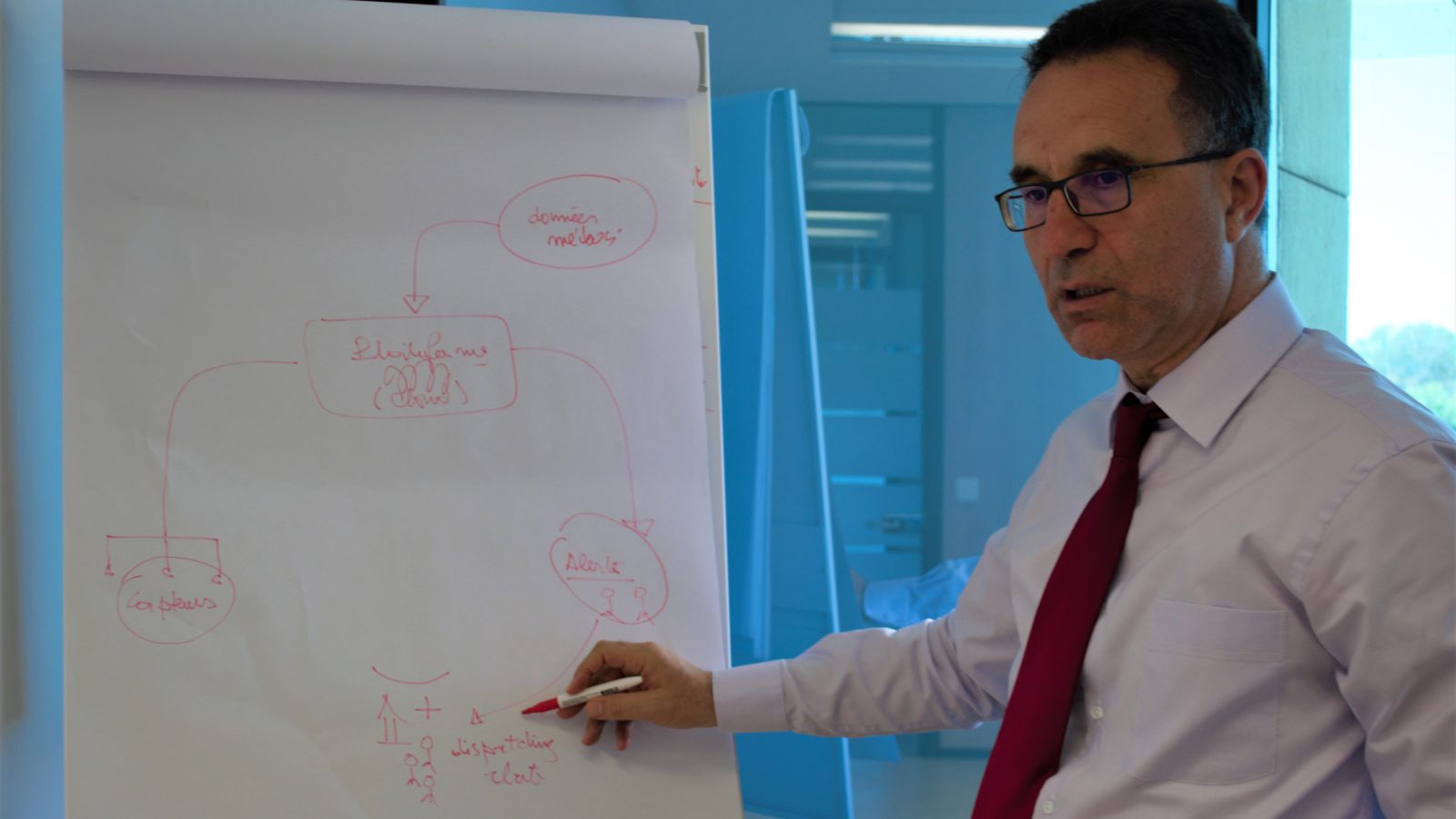INDAR: An intelligent Moroccan flood prediction and early warning system
Moroccan natural risk management expert, Mohamed Tabyaoui, set a goal for himself to improve Morocco’s resilience to flooding. This resulted in the launch of “INDAR”, a smart flood prediction and early warning system that has caught the attention of leaders of the Diafrikinvest programme – which receives 90% of its funding from the European Union – who have decided to offer this fifty-something Moroccan their support and backing.
Mohamed first became interested in disaster management in 2008 when he was appointed to a government team responsible for coordinating with the World Bank to manage natural risks. For five years, the team focused on the development and implementation of an integrated nationwide strategy in this field. “Our area of intervention included five risks: Floods, tsunamis, earthquakes, landslides and droughts,” explains Mohamed.
A few years later, Mohamed left the unit, but the idea of abandoning the field to which he had grown so attached was unsettling; “I asked myself: should I put everything I’ve learned aside, or use my experience and expertise to do something to help my country?”.
This question answered itself in 2014 when floods devastated the city of Guelmim, in the South of the country, resulting in 47 deaths and almost 530 million euros worth of damage, according to the World Bank. “It was one of the worst floods the country had experienced in the last 20 years. If there had been a smart early warning system, the losses would have been far less severe,” he reflects, with regret.
Mohamed concedes that “since then, Morocco has made considerable progress in the field of risk management in terms of infrastructure and purchased solutions.” However, in order to step up this progress, the relevant departments “must open up to innovation.” Mohammed believes that involving Moroccan start-ups in the struggle against natural risk will give Morocco, “the benefit of their agility in developing cutting edge technologies locally, for a low cost, which also have the potential to be exported to other areas of Africa and the world.”
In this spirit, he launched the start-up “PREV DEV” with the goal of developing smart solutions that provide flood alerts at a very early stage. Building on his past experience, and his sound training in information systems management at Carnegie Mellon University in Pittsburgh, Pennsylvania (1979) and the University of Washington in Seattle (2007), Mohamed and his teams set out to work on developing the first version of the system christened “INDAR” (meaning ‘alert’ in Arabic), with the help of the Bou Regreg and Chaouia Basin Agency and the support of the Swiss Agency for Development and Cooperation.
INDAR: How it works
Mohamed believes that “In the field of risk management, every second counts. INDAR operations must therefore focus on prediction and early warning in order to reduce the impact of catastrophes on the population, infrastructure and economic activity.”
INDAR uses algorithms to automatically assess the hydro-pluviometric status of at-risk areas. If there is an imminent risk of flooding, INDAR issues an automatic early warning 48 hours before the crisis occurs.
The advantage “is that INDAR gives risk managers enough time to take preventive measures by evacuating populations in danger or protecting fragile infrastructure.”
To further assist these managers with a precise image of what could happen on the ground, “INDAR allows you to visualise the strategic infrastructure threatened by flooding, such as railways, roads, industrial areas, etc., in 2D and 3D, with precise location details,” adds Mohamed.
“INDAR” can also generate a warning bulletin and send this to authorised people or entities. “This facilitates the collaborative work required to combat flooding, while preventing information from being distorted,” says Mohamed.
One of the greatest benefits of INDAR is the portability offered by its downloadable mobile application. “In Morocco, high tech risk monitoring generally takes place in an office, but thanks to INDAR, risk managers can assess the situation and issue instructions anywhere and at any time,” explains Mohamed.
INDAR has proven its effectiveness in tests using virtual data. Now, it must succeed when tested under real conditions, so that Mohamed and PREV DEV can convince risk managers that their smart prediction and early warning system is indispensable.
Pleading the INDAR cause
In a study published in 2016, the World Bank states that “the risk of natural disasters in Morocco, including floods, is both chronic and severe in nature.” They also estimate that the average annual damage caused by natural disasters in Morocco between 2000 and 2013 was at least 7.8 billion dirhams (715 million euros), around 60% of which was caused by flooding.
In addition to the floods that hit the city of Guelmim in 2014, Morocco has over 250 flood risk blackspots, “hence the need to deploy a system like INDAR in high-risk areas,” concludes Mohamed.
His concerns are confirmed by a report published in 2018 by the United Nations Office for Disaster Risk Reduction (UNDRR) which states that the last 20 years have been marked by a spectacular 151% increase in direct economic damage resulting from climate-related disasters.
What’s more, the report predicts that by 2030, 42% of Morocco’s coastal areas will be extremely vulnerable to erosion and flooding. These areas are home to the majority of the population (24 million inhabitants), as well as most major cities and economic infrastructure. The result: loss and damage are likely to occur if we do not step up the pace of implementation of risk prevention tools.
The World Bank, meanwhile, concludes that the worsening of the flood situation will mainly affect Moroccan citizens on low incomes and will hinder the fight against poverty, warning the government of foreseeable discontent among the Moroccan population if they are unable to mitigate the risk, which could rapidly lead to social unrest.
In order to remedy this situation, Mohamed believes it is necessary to “put new technologies at the centre of an integrated flood risk management and resilience policy.”
The European Union ambassador
“Money is the crux of innovation, explains Mohamed. The idea of the INDAR system may sound convincing on paper, but it would never have seen the light of day without the financial backing of the European Union.
PREV DEV has benefited from a 20-thousand-euro grant, which was used “to strengthen the INDAR solution by filling in the missing pieces, to pay staff wages, to test the prototype and to purchase the data required for the tests,” says Mohamed.
Like many other start-ups in Morocco, PREV DEV received support under two European programmes: Diafrikinvest and The Next Society, which operate in conjunction with the Moroccan accelerator programme “StartUp Maroc Booster”, managed by the not-for-profit StartUp Maroc. This association is among the incubation and support bodies accredited and certified by the CCG (Central Guarantee Fund), tasked by the Moroccan government with stimulating private enterprise and encouraging innovation.
The European Union financial contribution, via Diafrikinvest and The Next Society, is over 12 million euros over four years (2017-2021). This substantial sum is managed by the financial arm of the CCG, which operates under the name Innov’Invest.
Diafrikinvest receives 90% of its funding from the EU, a total of 2.2 million euros, as part of the Euro-African Dialogue on Migration and Development (Rabat Process). It is managed by the Anima Investment Network, which works with StartUp Maroc to implement some of its initiatives.
The Next Society programme, meanwhile, is supported by the European Commission and managed by StartUp Maroc. Today, it brings together over 300 business, research, investment and innovation organisations, 2500 SMEs and entrepreneurs from 30 Mediterranean countries. The aim of The Next Society programme is to “remove obstacles to innovation and unleash the creative potential of innovators…to reinforce innovation ecosystems and promote the creation of added value,” and to “give rise to concrete solutions.”
In addition to the Diafrikinvest and Next Society programmes, Very Small, Small and Medium Enterprises (VSEs and PMEs) in Morocco, such as PREVDEV, can take advantage of other European Union subsidies, in this case those granted under its programme to support competitiveness and green growth. Signed in November 2016 with the Moroccan government, this 105 million euro programme is a collaboration between the General Confederation of Moroccan Enterprises (CGEM), Maroc PME and the German Technical Cooperation (GIZ).
The EU also finances the “Small Business” programme, which provides advice and funding to SMEs (implemented by the EBRD-The European Bank for Reconstruction and Development) and contributes to programmes dedicated to energy efficiency in industry (MORSEFF,MedTest ,Switchmed).
The EU believes that by supporting each of these local and international programmes, VSEs, SMEs and innovators in emerging countries such as Morocco can create added value, contribute to solving contemporary problems and inspire the rest of the world.
INDAR Video
EU Neighbours Links
EU Delegation

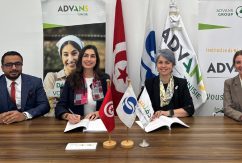

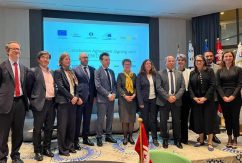

























 Syria
Syria 